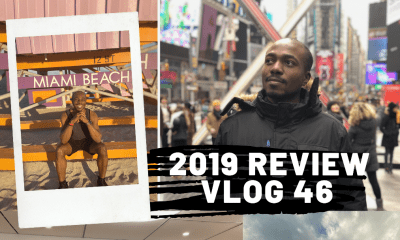Features
TRAVEL TIPS: Is It Safe to Go on a Safari? Here’s What You Need to Know

Going on a safari in Africa is inspiring and exciting. It is also wild. And while wild animal encounters make the experience that much more memorable, they are the biggest reason why we should discuss safety.
In this article, we are going to talk about how to prepare for an African safari, what to expect, and how to stay safe during an animal encounter.

Before you go
Science proves that the deadliest animal you’ll encounter during a safari is the mosquito. And this pesky little animal is responsible for spreading malaria. Therefore, make sure to get your vaccinations done before you leave. And while we are at it, don’t forget to pack mosquito repellent and wear it. Always!
You also want to carry a first-aid kit, which should include OTC medication for diarrhea, antihistamines, and a general painkiller. If you need to take certain medication, always carry the prescription with you. And to be on the safe side, ask your safari operator what you should pack for your safari.

During a walking safari
Walking safaris are one of the best ways to get close to wild animals. But this also means that safety precautions are higher than during other types of safaris. Here are some general safety rules during a walking safari:
- Never go on a walking safari without a guide. A guide ensures that you get the best experience, all thanks to their knowledge and safari safety training. Always obey their instructions.
- Safari clothing should help you blend into the background. Avoid black, while, and camouflage. Choose khaki, brown, and green.
- Never run. The only thing that runs in Africa is prey. And you don’t want to be considered pray!
- Walk in a single line, as instructed by your guide.
- Keep quiet. While the animals are used to vehicles, they are not used to human voices, and any sudden noise can trigger an attack or defense mechanism.
- Do not eat or drink anything other than water. Don’t even think about smoking.
- Do not attempt to change the animal’s behavior in any way. Trying to convince them to pose for a selfie may trigger an attack.
- And remember that, although rhinos and elephants are massive, they charge at high speeds.
During a self-drive safari
Many prefer to go a self-drive safari to explore the wildlife independently. Needless to say, this poses greater security risks than if you were going on a guided game drive.
Here are some general safety rules during a game drive:
- Keep quiet. While the animals are used to the vehicles and their noises, the human noise will disturb them. If you have to talk, do so quietly.
- Don’t stand up or dangle your arms or legs out of the vehicle. The animals are used to the sounds and shapes of vehicles, but anything “poking” out of them may trigger a reaction; they will either stand back or attack.
- Speaking of those limbs outside of the vehicle, you might want to watch out for low-hanging branches that can be quite thorny.
- Same as with walking safaris, do not disturb the wildlife just so that you can get a better shot.
- No smoking. The African bush is dry, and fire hazard is high.
- Drink only water. Sweet drinks lure insects. Also, do not eat anything while on a game drive.
- No littering.
- Be prepared for various weather conditions: bring sunscreen, a hat, and a windbreaker. A warm top is great to pack, too.
- Always travel with a map, working phone, and GPS (if possible).
- Remember that the drivers in Africa don’t necessarily follow the rules, so always drive carefully.
- Stop and rest often.
- Try to avoid driving at night.
Game drives are rather similar to self-drive safaris, but you do have the added safety of a guide. As they are trained to ‘see’ the animals’ reactions, they can tell you how to act so that you can stay safe.

General safety
It’s important to note that political turmoil may be a concern when traveling to Africa. In countries such as Rwanda, Burundi, Uganda, as well as Western Tanzania and Northern Kenya, you need to pay attention to these kinds of incidents.
Always check the updated travel advisories. USA’s Department of State regularly posts updated advisories and while we do not recommend to completely avoid a country, knowing what’s going on can make the difference between a safe and a not-so-safe experience.
Interested in going on a private safari to enjoy the plethora of the African wildlife? Check out the vast selection of safaris we have on offer and book the one that appeals to you most.
Cris Puscas
Cris is a contributing writer at BookAllSafaris.com. An avid hiker and passionate landscape photographer, she believes that all animals should be protected and loved.





















Recent Comments